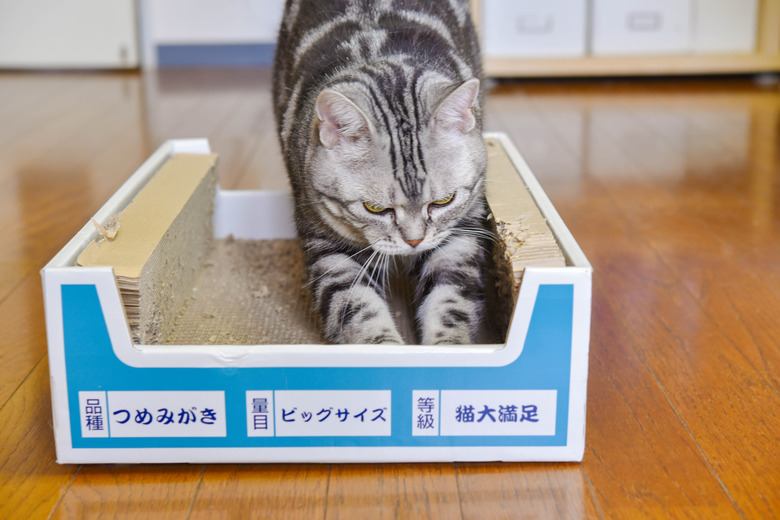How To Cat-Proof Your Home
You're bringing home a new kitten, or perhaps the cat you already own keeps getting into trouble. She's scratching up your furniture, destroying your tablecloths, eating your plants, and generally causing havoc in your home. Now, you're wondering: How do you cat-proof your home?
By taking a few simple steps, you can ensure your home is a safe and comfortable environment for your cat as well as keep it in tact.
Cat-proof your furniture with a scratching post
Cat-proof your furniture with a scratching post
Scratching helps your cat keep her nails sharp, so she needs to do it. However, your cat is likely to want to sharpen her claws on your furniture. Instead, you can invest in a scratching post and give her praise when she uses it rather than your furniture. There are a number of different cat scratchers on the market, including vertical and horizontal ones, as well as ones made out of carpeting or jute. It may take a few tries to figure out which one is the best for your cat. Just make sure that it's steady and won't tip over.
Mothballs are toxic to cats whether they're eating or sniffing them. If you use mothballs in your closet, make sure you keep them tightly sealed in a bag or a container and that your cat cannot reach them.
Store breakable items somewhere safe
Store breakable items
somewhere safe
Breakable items — especially ones that are antiques, expensive, or carry some sentimental value — should be placed in parts of your home where your cat can't access them. Your new cat may accidentally knock over your great-grandmother's vase, which is irreplaceable. It's best to keep your cat as far away from your delicate belongings as possible.
Cover your electrical cords
Cover your electrical cords
Unfortunately, cats, who love to chew, will go for electrical cords. These should be covered and out of reach of your cat, or else she could experience a shock.
Lock up cleaning products
Lock up cleaning products
If your cat accidentally gets into your cleaning supplies and ingests chemicals, she could get very sick. Even if your cat ingests a DIY homemade cleaning product like vinegar mixed with water, she could start vomiting, get diarrhea, or have oral irritation. Keep your household cleaners up on a high surface. You should also be aware that antifreeze, which you may have for your car, is also extremely poisonous to cats and can lead to death. Your cat should not be able to access it.
Create a cat-safe laundry room
Create a cat-safe laundry room
If you store your detergent on top of your washing machine, make sure it's completely sealed after every used. Dryer sheets should be stored in a safe spot too, since they are toxic to pets.
Get rid of poisonous plants
Get rid of poisonous plants
Some house plants are poisonous to your cat, including the sago palm, chrysanthemum, calla lily, and azalea. Even if you keep these plants on a high surface, your cat may jump up and try to eat them. It's a good idea to not have them in your home at all.
Block your fireplaces
Block your fireplaces
Fireplaces can be extremely dangerous to a cat. Purchase a cover for the fireplace and make sure the gas is off when you aren't using it — or that your wood and fire have completely extinguished when you're finished using your fireplace.
Hide rubber bands
Hide rubber bands
Cats like to play with rubber bands. If your cat eats one, it could potentially block her intestines and cause major issues. Your cat might need to get surgery and face life-threatening consequences. Store your rubber bands in a place where she absolutely can't reach them.
Close your toilet lid
Close your toilet lid
Your cat may like to play on your toilet seat and go into the toilet. It's not healthy for them to drink the water from the toilet bowl, so you should always keep it shut. You could baby-proof your toilet lid if your cat can lift the lid, as well as keep your bathroom door shut to set up another deterrent.
In summary
In summary
There are a number of ways you can cat-proof your home. By doing the work, you'll ensure your cat is safe and secure, and that she won't destroy your beautiful living space.
